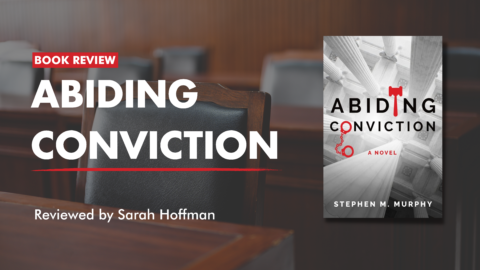This article was first published in the San Francisco Attorney magazine. See the original article here: http://www.sfbar.org/forms/sfam/q32012/pres-report-succeed-in-law-by-really-trying.pdf
Over the course of my career, I have been fortunate to be surrounded by talented, energetic young lawyers. When I was starting out, those peers served as role models and motivation, provided support, and sometimes offered a healthy dose of gallows humor through the completion of a marathon project. Over time, I started to work with lawyers who had less experience than me, at first just a few years, and now frequently fifteen years or more. For about eight years I was the partner in charge of Lieff Cabraser Heimann & Bernstein’s summer associate program, and for the last decade I have been the firm hiring partner, trying to identify people who will be successful in our practice. From these experiences, and from talking with partners in and out of my firm, I have developed some suggestions for law students and younger lawyers about succeeding in law.
Start building your professional networks and identity as early as possible
It may not feel like what you do in law school will carry over into your “real” career as a lawyer, but it is never too early to start creating your professional identity (your “brand”) as a legal professional. This is particularly important in this difficult and highly competitive job market.
If you want to meet people who can help shape where you work and how you practice, attend bar association networking events and receptions and, most importantly, introduce yourself to people. This may seem awkward at first, but trust me, the people who attend such events expect to be approached. Don’t be afraid to ask for a business card and to follow up with a request to have coffee or an informational interview. Find out how lawyers who are doing what you would like to be doing got there. Making even one contact gives you something to build on and could provide a friendly face to reconnect with at future events. Over time those singular contacts turn into many. (Before you know it, you may be president of the bar!)
Whether you are a law student or a newly minted lawyer, you would be well served to join the Barristers (Young Lawyers) Club of your bar association. Ask the younger lawyers about the quality of their jobs and employers. If you have an interest in a minority or specialty bar, find out if the organization has free events or memberships for law students or new lawyers.
If you have a law internship, make a point of networking with the people at your job to find out more about them and to solicit their advice about the practice and your future. Ask a partner to lunch if she does not do it first. Volunteer for nonprofit organizations that do work you care about. Try to make this a long-term commitment to organizations that you will carry into your career as a lawyer.
Beware of the trap of complaining about law school in public forums like Facebook and Twitter. If you repeatedly post how little studying you do or how you took your finals hung over, it may cause even your friends to lose respect for your potential in the profession before you’ve even started. With luck you won’t also lose job opportunities, deter references, or block potential referrals downstream, but sadly this too is possible.
Make career choices that are suited to your interests and personality
If you have choices, pick the job that is most likely to motivate you and is best suited to your personality. This probably sounds like obvious advice, but it seems the majority of young lawyers ignore it completely even if they have a number of jobs from which to choose.
You already know that lawyers work hard and that you will likely spend a lot of time at work. So pick a focus that gets you excited, gives you a cause, and provides you with a sense of purpose. If you are regularly bored or detached, your law career is going to be drudgery, especially if you are a litigator who has to represent a position that does not excite you in the heat of the adversarial process.
If possible, you want the job that plays to your strengths. For example, if you have a hard time with conflict, you would be well advised to steer clear of civil litigation jobs that are discovery-heavy. If you are a tremendous multi-tasker, a fast-paced shop with a lot of variability in the day may showcase your competencies. Likewise, if you know that you prefer considerable guidance before tackling a new skill, choose an employer that offers significant training programs, structured mentoring, and a graduated introduction to increasing amounts of responsibility so that you don’t get labeled as weak or shirking if you shy away from sink-or-swim assignments. (You might also gravitate to certain practice groups, teams, or personalities within a firm to achieve this desired fit.)
Be flexible about your “ideal” job
Try to stay flexible about what the ideal job looks like. Your law school career services office may have made you think that the only desirable jobs are at AmLaw 100 firms. Perhaps for your interests, that was correct. But keep in mind that there are many types of legal employers and careers, and the vast majority of legal employers do not recruit on campus.
Among those that do, there are important differences across firms, starting with the people. For any potential employer, be guided by your “spidey sense” as to whether you will find more kindred spirits at one firm over another, especially among potential mentors. This does not mean you should necessarily look for the firm with the most people who look like you or share your background. In some cases, that may be of paramount importance to you. But also focus your antennae on the temperament of the people and their orientation to the work and try to pick a place where you can feel at home from the beginning, not just in your peer group, but also with your potential mentors.
Don’t be afraid to start your own firm, by yourself or with colleagues. Many of the most successful and fulfilled lawyers you will meet along the way did just that. In the event that you have been looking for work and are one of the many recent law graduates who find themselves unemployed and without terrific law job prospects, do not despair. While the paying jobs are hard to find, your legal skills were never more needed by the community than they are right now. In every critical area, low-income people in particular desperately need lawyers. If you can volunteer the time, commit yourself to pro bono projects with an experienced legal aid or nonprofit law center. You will do important, rewarding work that develops your legal skills while you broaden your networks and the likelihood of finding the right employment match for you.
Put in the time to learn the practice
Now that you have the job, please understand that it takes a long time to learn the craft. I think I am still learning it after nineteen years.
In the first few years especially, you may discover that it takes you a lot longer to do things than either you or your supervisors anticipate. This is not because you are incompetent. It is because you are learning and applying a new language expressed in a new and very specific way for the first time. (And also, your supervisors have probably forgotten how long it once took them to do the same task.) This can be awkward and confusing. But the strategy that I urge all new lawyers to adopt is simply to accept this learning curve for what it is, roll up your sleeves, and gut through those first years. It will involve some long, often frustratingly inefficient hours, and some personal sacrifices. (I’m afraid to report that work-life balance, even if you do it well, doesn’t mean you never make sacrifices for the job.)
The effort will pay off, because you will acquire skills faster and more effectively when you commit the time and attention it takes to do things the right way to completion. I don’t think there are shortcuts around this if you want to be a successful lawyer because you only acquire skills with experience. Having said this, if a project can safely be left to the next morning or left until the weekend is over, it is OK to pace yourself. Just make sure you are not simply deferring more time pressure to the next day or week.
The corollary to this is to stay on top of developments in your area of practice. Keep up to date on changes in the law and attend relevant CLEs. Be skeptical of old briefs on a similar area of law—the facts of each case vary and the law changes, sometimes in dramatic fashion. Do your own research. Be ready to speak intelligently with colleagues in your firm about what you are doing. Also, make pro bono a meaningful part of what you do every year. Contribute to the betterment of the community. Test out new skills. Take ownership of the results for clients early in your career.
Be indispensable
Everyone likes to work with someone with a can-do attitude. You will earn many fans by volunteering to take
on work, suggesting projects that advance the client’s interests, identifying better or more efficient ways to accomplish tasks, or protecting the team from foolish decisions by anticipating potential problems and weaknesses in a strategy.
Know the facts of your case or the eccentricities of the assignment. It is tremendously valuable when an associate really knows the issues and evidence. This can make you a key teammate of the partners in a variety of settings,including where your knowledge is important to resolve significant strategy questions.
Pay attention to your deadlines. No one ever gets in trouble for finishing early, but if you are late you may earn the unending frustration of your supervisors or, worse, prejudice your case. Also, own your work. By that I mean, do not submit partially completed work and expect someone else to polish, edit, or correct it.
Act like you are the partner on the file for the purposes of any assignment to you, and like the buck stops with you. If you submit unedited, sloppy, or incomplete work, you will quickly get on the wrong side of your supervisors and team.
In particular, be a perfectionist in your written work and written professional communications. There is no place for slang or typos in professional writing.
Own your mistakes. If you realize you did something (or failed to do something) that has caused a problem, go to your supervisors immediately to discuss it and propose a solution. While admitting mistakes can be painful, you will build important trust by owning a problem early and give your team the best chance to address and fix the error quickly.
Do the “little things” without being asked to do so. This might include calendaring case deadlines after a brief is filed, reviewing a newly filed brief and circulating a list of potential issues you spotted, drafting a proposed response to opposing counsel correspondence, circulating new cases of interest to your team, keeping notes at significant meetings or during conference calls, or organizing team meetings on topics that you know need to be addressed.
This is what partners internalize and have to do across myriad tasks. If you exhibit these skills early, it is much more likely your supervisors will consider you a partner-track type of lawyer than if you wait for direction before doing anything.
Invest in and respect your brand
Your brand is something that you have been building since law school and it will follow you your whole career. It is both internal to your job and external to the greater legal and client community. It is the professional reputation you create through hundreds and thousands of interactions you have and decisions you make. It is hard to build, and very easy to blow, so take very good care of it.
To this end, be civil. Don’t be afraid to be friendly with opposing counsel. Accommodate simple requests that don’t prejudice your client’s interests. Identify your differences without making it personal. If you find that you have not been your best self, apologize and don’t do it again.
Have respect for yourself, the court system, and the law. Volunteer for activities that support the development of law. Write articles and speak on panels. Become active in the bar. Recognize your limits and take planned time away from work, for vacation, for play, for family. Support the people you meet along the way, above you, at your level, coming up behind you, and across the profession. This is your network. It is largely up to you what you make of it.
Set personal goals in your career
Set short- and long-term goals. For example, identify where you want to be in one year and in three or more years. Then determine what you need to do to get there.
Use these goals to prioritize competing opportunities in your professional life. You will likely have opportunities to work on many more cases and to volunteer for many more organizations than there are hours in the day to do everything you are offered. Make sure you aren’t being drained by projects that don’t advance your personal goals or otherwise fulfill you. Ask for advice from your mentors and people around you if you are unsure how to get to where you want to go. Make sure you like the idea of one day being a supervisor in your organization, because that is the career path you are on unless you change it.
Don’t be scared of some personal ambition. It is OK to want to advance your career. You have worked hard to get to this place. Now go for it. Enjoy the ride. Good luck to you!
About the author:
 Kelly M. Dermody is the managing partner of Lieff Cabraser Heimann & Bernstein‘s San Francisco office and chair of the Employment Law practice. She was the 2012 president of The Bar Association of San Francisco.
Kelly M. Dermody is the managing partner of Lieff Cabraser Heimann & Bernstein‘s San Francisco office and chair of the Employment Law practice. She was the 2012 president of The Bar Association of San Francisco.





0 comments on “How To Succeed In Law By Really Trying”